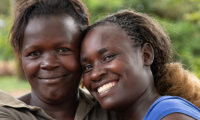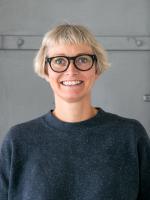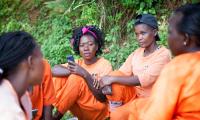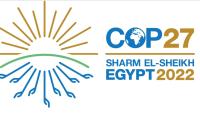Equal rights

We fight for a world where everyone is free to opt out of or choose parenthood, free to decide how many children they want and when, free to live a sexually healthy life. A world where gender and sexuality are not a source of violence, inequality, discrimination and stigma.
Gender inequality is not just an issue of women's and minorities' rights and health. Inequality and norms of gender and sexuality also harm men. For example, when norms around masculinity mean that men do not seek the medical help they need or that men engage in risky behavior such as heavy drinking or unprotected sex.
We therefore believe that norms for gender and sexuality and the power structures that have a negative impact on the sexual and reproductive health of all people must be challenged.
Why do we focus on equality?
Equality is closely linked to sexual and reproductive health and rights, as norms for gender and sexuality affect health and rights. Therefore, in our international work, we work to challenge and change harmful and discriminatory norms.
In order to create dialogue and understanding of why some norms are restrictive, we must be able to understand how they affect e.g. men and women and trans people differently.
We work with equality and the gendered dynamics because it is necessary to understand and work with and against these so that everyone can have control over their own body, sexuality and gender
How do we work with equality?
In order to promote equality and sexual and reproductive health and rights, it is important to engage both those who are negatively affected by discriminatory norms and those who maintain these norms.
One of our strategies is to engage people with power. Both people with informal power in the form of authority, but also people with formal power such as politicians. We engage those with power and privilege as they play a very important role in changing societal norms, especially when it comes to equality.
We highlight the importance of norms, create dialogue and offer tools for how people with privileges can contribute to creating better conditions for all people, regardless of gender.
We support and mobilize people who are negatively affected by norms around gender and sexuality. We equip them so that they know their rights, strengthen their ability to act on their rights and improve their sexual and reproductive health.
In western Uganda, we have supported the local civil society organization Reproductive Health Uganda in their work to fight inequality and promote sexual and reproductive health. RHU creates opportunities for women and girls to organize themselves and learn about their rights and health. In the groups, girls and women talk about their challenges and share ideas on how to challenge current gender norms at home and in the local community. They engage in dialogue with local authorities and influence their local communities. Specifically, the women's groups have given input on how the local budget can be spent on matters that have a positive impact on them and they have introduced initiatives that prevent gender-based violence.
In Kenya, for four years we have collaborated with local women's rights organizations that prevent and deal with gender-based violence from different angles. Gender-based violence is a widespread problem in Kenya and there is a need for traditional gender roles to be challenged and for the authorities to cooperate in relation to preventing violence, enforcing the law and supporting the people who have been exposed to violence.
As a result of a long tough move and a lot of professional input, the partners have achieved that the local government of Homabay now has their own policy for preventing and combating sexual and gender-based violence. It forms the basis for a political and economic prioritization of the area and is based on international standards and many years of experience.
Contact



